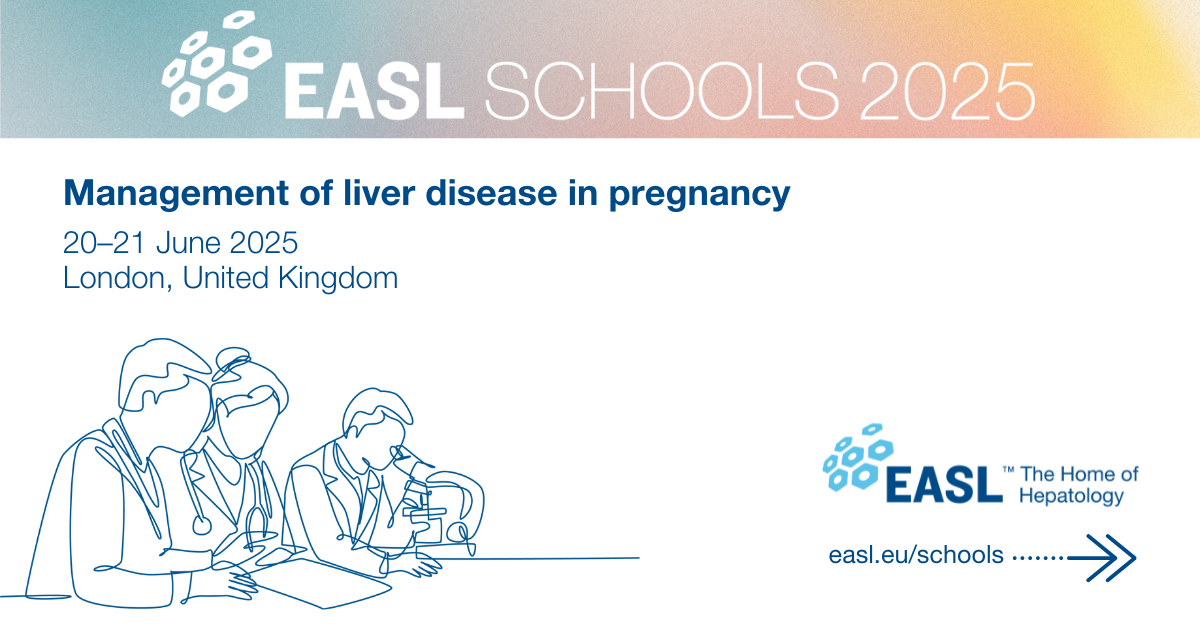
Management of liver disease in pregnancy
This EASL School is dedicated to management of liver disease in pregnancy and will be delivered by world-leaders in the field. Focused on the topics covered in the recently published EASL Clinical Practice Guidelines on the management of liver disease in pregnancy the school will cover both chronic hepatic disorders occurring coincidentally in pregnancy and gestational liver disorders. This school aims to equip delegates with the best available evidence in this field and translate it into their practice to improve maternal and foetal outcomes.
Students will gain a robust grounding in the physiological and hormonal changes in pregnancy, an understanding of how liver diseases can affect pregnancy and pregnancy outcomes, and knowledge about the safety of investigations and pharmacological therapies in pregnancy. With reference to the EASL Clinical Practice Guideline on management of liver diseases in pregnancy, students will have the opportunity to discuss best evidence-based management and explore gaps.
School Organisers:
- Catherine Williamson
- Melanie Nana
Please note that the programme is subject to change, and will be updated continuously up to the school event.
Learning objectives
- To gain an understanding of the physiology of pregnancy, how hormonal changes can mimic those seen in women with chronic liver disease.
- To understand the safety of relevant investigations and pharmacological management for women with liver disease and pregnancy.
- To improve confidence in managing both pre-existing and gestational liver disorders in pregnancy.
- To gain understanding of how to interpret novel research findings and incorporate into best evidence-based practice.
- To understand wider implications of health disparities in maternity care and consider ways in which these can be improved in both clinical practice and research.
Target audience
- Hepatologists
- Transplant Hepatologists
- Clinical Scientists

